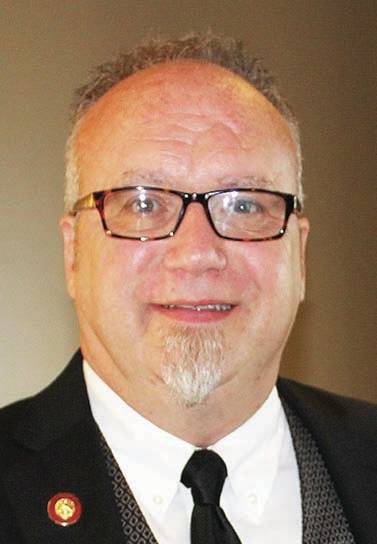Memories of hardships at home, abroad
Published 6:01 am Saturday, January 6, 2018
When Don Earnest went to Korea in 1952 as part of the U.S. Air Force, he was stationed northwest of Chunchon where buildings had been bombed, and malnourished children were living in the rubble. In 2018, he still sees these children in his dreams and in his waking hours: Their feet wrapped in rags and their diseased, emaciated bodies clothed only in burlap sacks or canvas. Feet and hands were sometimes missing as were their fathers who had been killed or simply deserted the family. Mothers were absent as well, leaving the children to fend for themselves in the streets. Children battled each other for the garbage in the cans from the military bases. In winter, some of the children froze to death as they huddled under slabs of broken cement.
Hunger and lack of warm clothing were not new to Earnest because he had joined the U.S Air Force to lessen the burden on his family in Wheeling, West Virginia. His family included his parents (His father, with whom he never talked, worked at Wheeling Steel as a carpenter and later as a machinist), six sisters, and two brothers — all living in a two-room tarpaper shack built of packing crates and located by the town dump on the Ohio River. The family clothing and other necessities came from the dump.
Earnest dropped out of high school at 16 to work. On three occasions, his high school principal came to the home and took him back to school. On the third try, the principal gave up and found him a job as a stock boy/delivery boy/window dresser at an upscale clothing store.
At close to age 17,Earnest was in the Air Force where he was given a battery of tests and always scored well-which translated into responsible positions in the military.
While in Korea, he sent all except $10 of his monthly paycheck to his mother so she could buy clothes at the local Salvation Army. She then mailed them to him for distribution to Korean children.
When a train from Pusan (now Busan) went by transporting soldiers, dead and living, through the area, the Korean children would follow the train, hoping the GIs would throw food off it, and some of the children were killed by the train.
Every day, Earnest is haunted by those memories. In 2015 he and two other Korean War combat veterans whom he knew, Donnie Meek and Don Motter, traveled to South Korea under the sponsorship of a Chicago Presbyterian church. After the 15-hour trip to Inchon, then to Seoul, the veterans were housed in an elaborate hotel. Every day of that week the tour guides came to take the group of 2,800 from the U.S. to another celebration in honor of the American role in the Korean War.
In South Korea, Earnest found “interstates, high-speed rails, clean streets, well-dressed people, a built-up navy, large apartment buildings and jobs for all with young people all going to college for at least two years.”
North Korea was a different story: “The windows are all fogged over We were told to take off ribbons or medals. There was a line down the street, and we couldn’t shoot photos across that line. We traveled to a building where the truce was signed with a long table where North Koreans sat on one side and South Koreans on the other side.
“On arriving home in 2015, I had all these bad feelings about when I fought there; I thought those bad memories would be gone. In fact, it just brought them back.”
Those memories are coupled with the hardships in his hometown of Wheeling where unemployment is high. He asks, “While we are in the process of making America great again, when will we begin to address the problems here? Look at how South Korea was built up. Why can’t we fix Wheeling? In Wheeling there is very little work and any available is low paying. The factories are gone. There’s no future there for college kids. I can’t understand why the government puts so much into foreign countries.”
He believes that Trump’s promise to rebuild inner cities was just a promise. “Leadership talks a lot, promises, but once elected, it’s all forgotten.”
Earnest favors government subsidies of industries in places where major employers have left the area as well as programs to help relocate those who want to be relocated to areas where there are good jobs.
Earnest’s parents never left Wheeling, but they assumed their children would. In his four years in the Air Force, Earnest was in school and learned and learned. After Korea, he was sent to Wright Patterson Air Force Base, and he continued to learn and learn.
When he retired from civil service at Wright Patterson after 39 ½ years, he had the highest possible civil service rank, WS 17. Electronic testing of fighter aircraft was first on his work list, followed by modernizing aircraft and testing for information associated with the dropping of an atomic bomb. Next, he worked on the trainers that teach pilots instrument flying. And then it was modification of smart bombs and the installation with engineers of laser bombs to be tested by pilots. His last job was as Branch Chief of the modification center on the aircraft.
Earnest brings up a critical issue: What is the responsibility of those who govern to look at the voiceless and use tax dollars to bring about positive change for them in terms of job training and jobs? I’m aware of the political, social, and financial complexities involved.
I know Earnest is highly intelligent, motivated, caring and honorable. I’m glad he escaped the two-room shack by the dump. I want more to have that opportunity.
Contact Dr. Vivian Blevins at vbblevins@woh.rr.com and Don Earnest at Earniedoandro@ aol.com.






